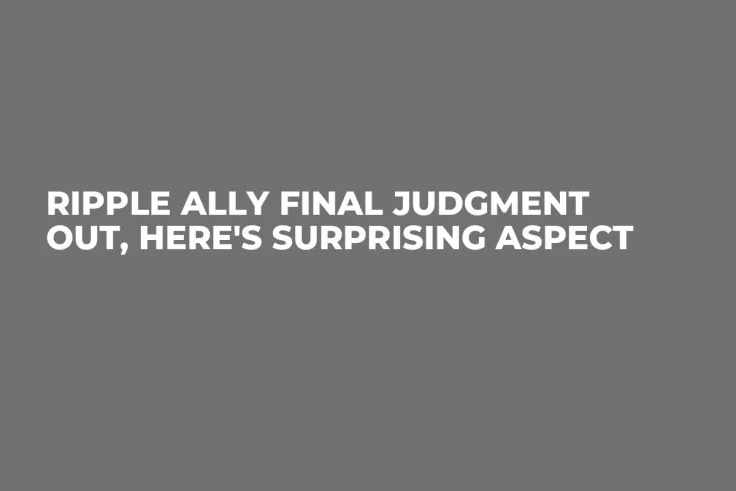
Disclaimer: The opinions expressed by our writers are their own and do not represent the views of U.Today. The financial and market information provided on U.Today is intended for informational purposes only. U.Today is not liable for any financial losses incurred while trading cryptocurrencies. Conduct your own research by contacting financial experts before making any investment decisions. We believe that all content is accurate as of the date of publication, but certain offers mentioned may no longer be available.
The final judgment in the LBRY v. SEC case is out; Ripple enthusiast James K. Filan shared the document on Twitter. This has elicited reactions from the XRP community, which is concerned about the implications of such a ruling on the Ripple-SEC lawsuit.
In a throwback, on Nov. 7, 2022, the court granted the Securities and Exchange Commission (SEC) a victory in summary judgment and found LBRY liable for violating Section 5 of the Securities Act.
#XRPCommunity #XRP #SECGov v. #Ripple In the LBRY case, the Court has issued its Final Judgment. https://t.co/uCdJQXh5Tb?from=article-links
— James K. Filan 🇺🇸🇮🇪 (@FilanLaw) July 11, 2023
As stated in the final judgment, LBRY is permanently restrained and enjoined from violating Section 5 of the Securities Act 15, directly or indirectly, in the absence of any applicable exemption, unless a registration statement is in effect as to a security.
This includes making use of any means or instruments of transportation or communication in interstate commerce or of the mail to sell such a security through the use or medium of a prospectus or otherwise.
The final judgment summarizes that LBRY is permanently restrained and enjoined from participating, directly or indirectly, in any unregistered crypto asset securities offering.
LBRY will also pay a civil penalty of $111,614 to the Securities and Exchange Commission and is expected to make this payment within 30 days after the entry of the final judgment.
XRP community reacts
Pro-Ripple lawyer Jeremy Hogan weighs the consequences of the final ruling in the SEC v. LBRY case. He noted that the judge did not rule on secondary sales or, not surprisingly, the Major Questions Doctrine. Instead, the judge enjoined further violations and issued a penalty. Hogan poses the question as to whether a similar result might be possible in the Ripple case.
Hogan answered in the affirmative, and he adds a clause: the court would have to find that there is not enough to the Fair Notice Defense to have a trial on the issue. Also, the court would have to find that past and present sales of XRP are investment contracts to provide injunctive relief.
Injunctive relief would be a big problem for Ripple, Hogan added, as it would enjoin sales from escrow.
He highlights positivity, saying it is a problem that has a possible solution; it would just require a workaround that might interfere with Ripple's business plans. Hogan concludes that no ruling on secondary market sales is a "status quo" ruling.

 Dan Burgin
Dan Burgin Vladislav Sopov
Vladislav Sopov